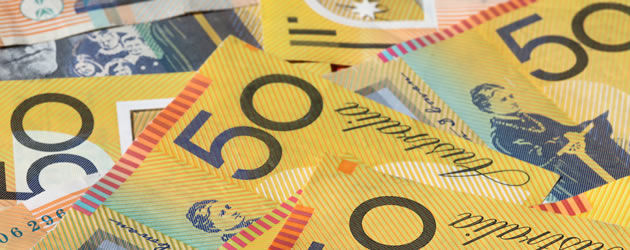The Euro to Australian Dollar (EUR/AUD) exchange rate ticked higher on Monday afternoon.
With tensions between Greece and Eurogroup officials fractious at best, the shared currency continues to decline as traders fear that a Greek exit from the Eurozone will have widespread ramifications. Additional declination can be attributed to disappointing domestic data results.
The ‘Aussie’ (AUD), meanwhile, edged lower versus many of its major peers as geopolitics in Europe weighs on trader risk-appetite. The losses have been somewhat slowed, however, after the People’s Bank of China adopted stimulus measures to counteract a recent succession of less-than-ideal domestic data results.
The Euro to Australian Dollar (EUR/AUD) exchange rate is currently trending in the region of 1.3925.
Euro (EUR) Exchange Rate Softens on Grexit Fears
Although the deadline for Athens to produce acceptable reforms has been extended into May, many feel this is only prolonging the inevitable. The new Greek government is clearly struggling to balance pleasing its people and its creditors, opting to attempt to straddle two horses whilst hanging on by their fingertips. Greek officials have spoken out recently, stating that they favour the people’s needs over creditors.
‘We know we are bound to a program,’ Mr. Varoufakis said in an interview late last week, before his private meeting with Mr. Buchheit. ‘But there is another principle here: democracy.’
European economic data printed poorly on Monday which fed into Euro bearishness. March’s German Producer Prices softened by -1.7% on the year, a larger declination that the median market forecast of -1.6%. On the month, March’s Producer Prices advanced by 0.1%, missing the median market forecast of 0.2%. Eurozone Construction Output declined on both a yearly and monthly basis.
The Euro to Australian Dollar (EUR/AUD) exchange rate dropped to a low of 1.3780 today.
Australian Dollar (AUD) Exchange Rate Ticks Lower on Market Sentiment
The mounting geopolitical tension in Europe has had a detrimental impact on trader risk-appetite and the high-yielding Australian Dollar softened as a result of a lack of demand. The declination has been slowed, however, after the PBOC employed stimulus measures in order to combat recent disappointing domestic data results. A softer Yuan is positive for Australia thanks to their intimate trade relationship with China.
‘The market is digesting a cut in the reserve requirement ratio by the People’s Bank of China that has now confirmed that China has moved away from a neutral monetary policy stance whilst adopting an easing bias, which will look to alleviate deflationary threats and stimulate growth,’ stated Neil Looker, writing for City Index.
Euro to Australian Dollar (EUR/AUD) Exchange Rate Forecast to Advance on Damp Sentiment
Although the potential for a Grexit is weighing on demand for the Euro, it is also weighing heavily on demand for high-yielding assets. Therefore, the Euro to Australian Dollar (EUR/AUD) exchange rate has the potential to advance over the remainder of Monday’s European session. A speech by RBA Governor Glenn Stevens due early in the Australasian session could see EUR/AUD volatility.
Tuesday is likely to see heightened EUR/AUD movement with several data publications pertaining to both Europe and Australia due for release. The RBA minutes from their most recent policy meeting and the German Economic Sentiment Survey will hold the most weight to provoke movement.
The Euro to Australian Dollar (EUR/AUD) exchange rate climbed to a high of 1.3924.



